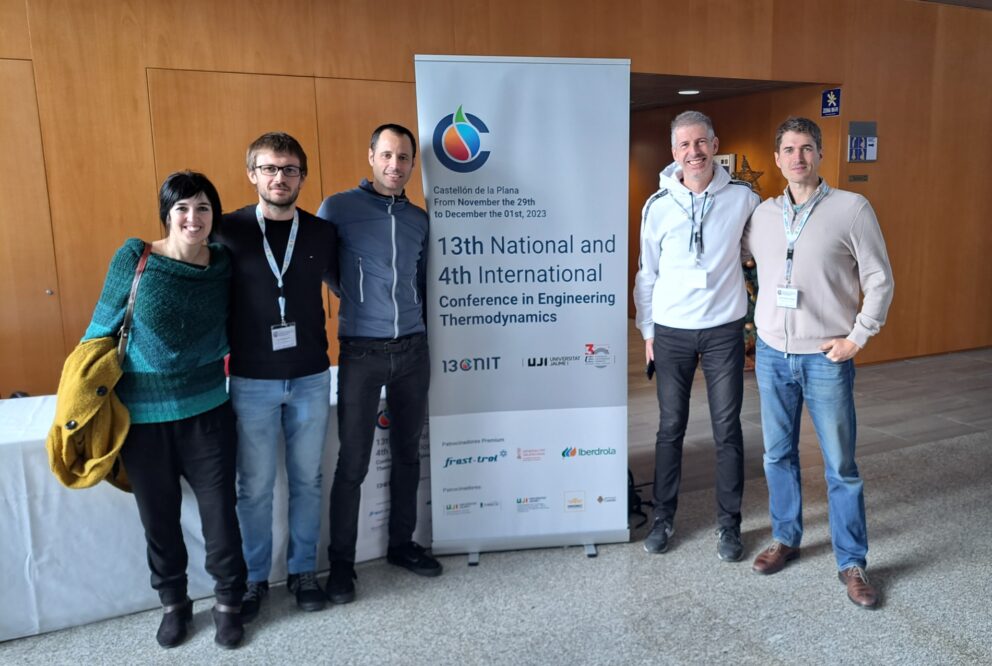ENEDI staff participated in the 13th National and 4th International Conference on Engineering Thermodynamics (13CNIT), which was held between Wednesday, November 29 and Friday, December 1, 2023 at the Universitat Jaume I (Castellón de la Plana) under the motto “Advances in Engineering Thermodynamics, the key to sustainable development.”
https://www.fue.uji.es/13cnit
After the first edition, which occurred in 1999, the congress has been growing and in the last four editions it has become international to enhance its impact and expand the number of papers presented, researchers, teachers and participating companies. In this way, a greater exchange of information, technical advances and synergies has been achieved between the participants in this event.
In total ENEDI has contributed with 14 presentations and posters that cover the group’s three main lines of work: building physics, thermal installations and thermal energy storage. Below is a list with the title of all the works presented:
- Consideration in the design of a Local Energy Community: A case study in Guzman
- Thermal stability of the D-Mannitol-Dulcitol eutectic mixture for thermal storage applications
- Experimental assessment of a plate-based LHTES: comparison between compressed expanded graphite plates infiltrated with a PCM and bulk PCM plates macroencapsulated in aluminium boxes
- Development of a semi-virtual platform to test microgeneration hybrid thermal systems: analysis of the performance of a Stirling micro-CHP installation in a single-family house
- Calculation of the cooling and heating solar efficiency in passive skin solution systems
- Experimental method for estimating the influence of the solar radiation on the inner surface heat flux of opaque elements of building envelopes
- Overall uncertainty analysis of zonal indoor air temperature measurement in an in-use office building
- On the use of TGA for the study of degradation of thermal energy storage materials: analysis of the influence of evaporation
- Heat cost allocation in multi-apartment buildings with collective systems
- Project-based learning as a tool for improving both technical and interpersonal skills of thermal engineering students
- Exploring the Integration of Photovoltaic Panels and Heat Pumps for Public Residential Buildings Sustainability
- Method for obtaining an accurate model of photovoltaic forced ventilated façade (PV-FVF)
- Method of merging Thermoeconomics and Machine Learning to calculate the effects of climate change on building thermal systems
- ARCAS: A novel multicriteria methodology to assess the renovation of social housing buildings

